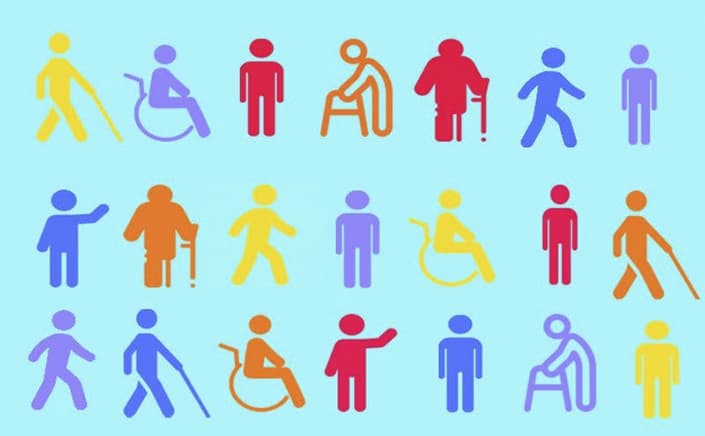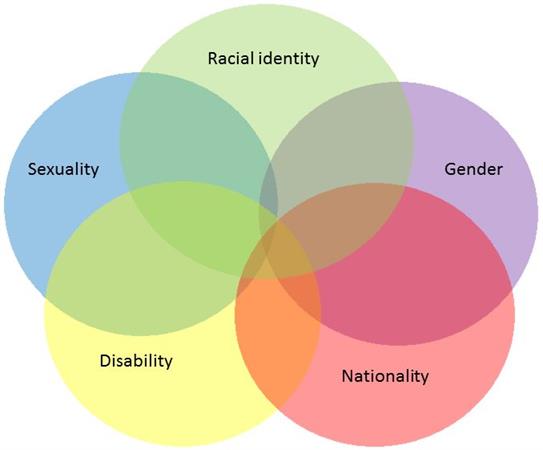Disability has, for centuries, been a taboo topic in our society. Disabled people are stereotyped, discriminated against, and denied access to basic human decency. On the other hand, the patriarchal system of our society has always been disadvantageous for women. Yet, the intersection of two of the most discriminated and marginalised sections of the society has not been of a matter of prime concern for public discussions. The manner in which they are overlooked and their exclusion from social and political spheres has further led to the negligence of their ability to realise their basic needs and rights. It, therefore, becomes essential to acknowledge the challenges faced by disabled women due to their dual disadvantageous status in the society.
Since the upsurge of feminist movements in India, there has been a range of gender-based studies in different disciplines, but little work has been done around taking disability into account. The construction of a disability identity – possessing a positive sense of self and feelings of connection to, or solidarity with, the disabled community – requires mental and emotional strength, as well as support from friends, family, and community. People struggle with developing a disability identity with all the prerequisites in mind, but to develop one along with being a disadvantaged gender in society, seems an achievement in itself. Identities of disability are further dominated by caste, class, gender, and religious factors which govern the cultural and social environment of the person.

One of the major challenges faced by disabled women is gaining access to educational spaces. Although the literacy rate in India has improved overtime, the literacy rate of disabled female persons in India has not even reached fifty percent yet. Those who, after many trials and laborious procedures, reach the stage of acquiring education in public institutions, face marginalisation due to their disability. The lack of infrastructure that is particularly sensitive to the needs of disabled students in general, and disabled girl students in particular, increase the accessibility problems for them. Many avoid such social interactions on a daily basis due to the prejudiced societal gaze. Barriers like these prevent adequate representations at higher positions in government as well as private institutions. It also contributes to the list of difficulties a disabled female person faces in being employed.
Apart from the public sphere, women with disabilities come across challenges at the domestic front as well. Violence against women with disabilities in private sphere can range from neglect and physical abuse, to them not not being able to find a partner who is not prejudiced. In a society which considers women a liability, women with disabilities are often abandoned. In fact, they also are more likely than boys with disabilities to be (sexually) abused particularly by family members. Even after marriage, there is an extreme possibility of them being discriminated against, abused, and neglected. What one should not forget here is that harassment is both physical as well as mental. It is paramount, therefore, that women with disabilities are provided with adequate knowledge about sexuality which will equip them to understand that they have been sexually assaulted. There is the need for policy makers to ensure greater accessibility to complaint and redressal mechanisms for them.

The question of women’s agency is central to the feminist discourse at large, in this particular case the issue of women’s agency seems to be in grave peril. There are several limitations – societal prejudices, familial obligations, caste, class, and so on – for women who strive to exercise their agency. Women with disabilities tend to lose out on this right all the more. Decisions about their life are taken by the patriarch of the family. While the actions of these decision makers might be well-meaning, they don’t understand that they take away the right of the woman to make the decision herself when acting on behalf of them. When a woman with a disability tries to participate as a major decision maker in her own life, she has to overcome many hurdles. They don’t always succeed in battles like these.
Thus it can be observed that there is a dire need of infrastructural and legislative changes with regard to women with disability as well as the need for spreading awareness amongst them about their rights. More importantly, it is necessary to recognize the rights of women with disabilities over their own bodies and lives.
Khyati is a third year History student at Lady Shri Ram College for women. She believes that words have the power to change the society, and tends to use these. Interested in research, she's expecting to pursue the same in furure.



This is a very good tips especially to those new to blogosphere, brief and accurate information… Thanks for sharing this one. A must read article.
hello!,I really like your writing so so much! proportion we keep up a correspondence extra about your post on AOL? I need an expert on this area to resolve my problem. May be that is you! Taking a look ahead to peer you.
Hi there, just was alert to your weblog thru Google, and found that it is truly informative. I’m gonna be careful for brussels. I will be grateful in the event you continue this in future. Lots of people will likely be benefited from your writing. Cheers!
Superb blog! Do you have any helpful hints for aspiring writers? I’m hoping to start my own site soon but I’m a little lost on everything. Would you suggest starting with a free platform like WordPress or go for a paid option? There are so many choices out there that I’m totally confused .. Any ideas? Thanks a lot!
Hey there, I think your website might be having browser compatibility issues. When I look at your blog site in Opera, it looks fine but when opening in Internet Explorer, it has some overlapping. I just wanted to give you a quick heads up! Other then that, fantastic blog!
My spouse and I stumbled over here by a different web page and thought I might check things out. I like what I see so i am just following you. Look forward to exploring your web page repeatedly.
I love your blog.. very nice colors & theme. Did you create this website yourself? Plz reply back as I’m looking to create my own blog and would like to know wheere u got this from. thanks
I’m still learning from you, but I’m improving myself. I certainly liked reading everything that is posted on your site.Keep the stories coming. I liked it!
Hello! I could have sworn I’ve been to this blog before but after browsing through some of the post I realized it’s new to me. Anyways, I’m definitely happy I found it and I’ll be book-marking and checking back frequently!
Awsome post and right to the point. I don’t know if this is actually the best place to ask but do you people have any thoughts on where to get some professional writers? Thanks 🙂